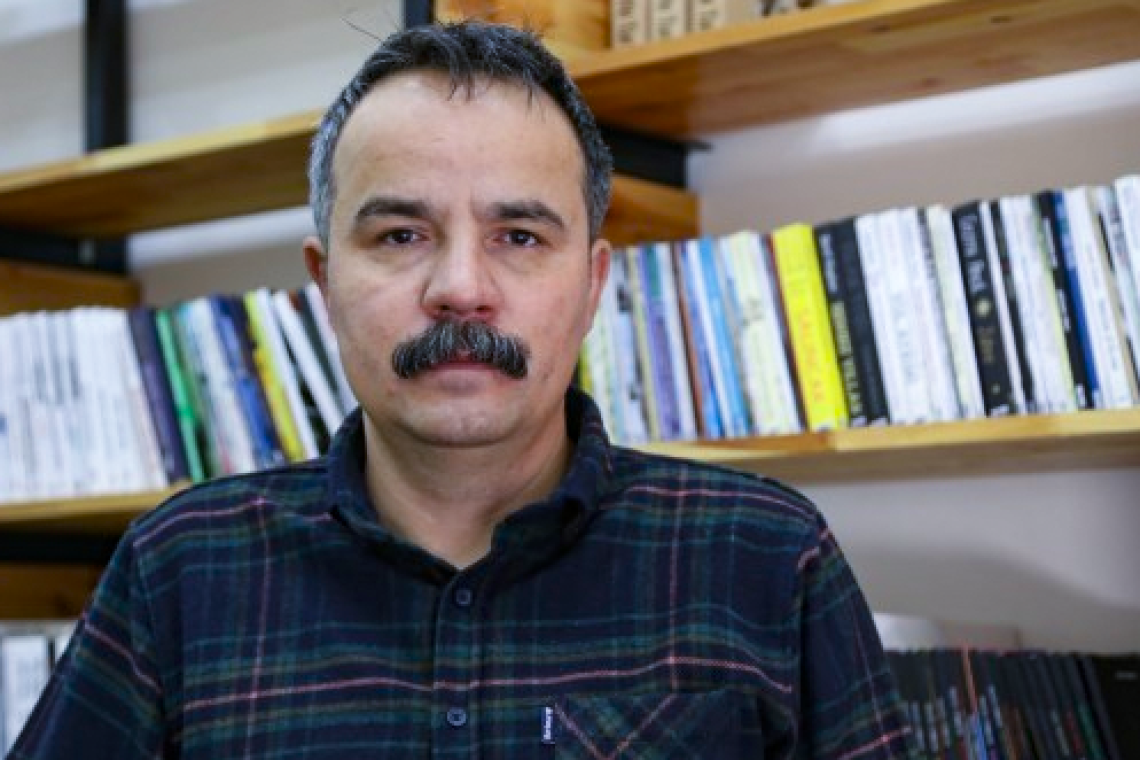NALİN ÖZTEKİN
Sociologist and author Veli Saçılık, dismissed from public service under a decree-law (KHK) in Turkey, criticized the ongoing judicial control measures in his case, despite being acquitted. Saçılık described the measures, which include a travel ban, as a form of "captivity."
Saçılık was dismissed from his government position in 2017 following a decree-law and later faced trial at Ankara’s 25th High Criminal Court over accusations of "membership in an armed organization" and "propaganda" linked to protests demanding the return of their jobs, notably associated with Yüksel Street demonstrations. After his acquittal on March 18, 2021, the appeals court upheld the decision. However, despite these rulings, Saçılık’s travel ban was not lifted, and his legal team’s appeals to have it removed were rejected. The case has now reached the Court of Cassation.
Saçılık’s attorney, Senem Doğanoğlu, submitted an appeal to lift the seven-year travel ban, noting that the law limits such measures to four years. On September 17, 2024, the 25th High Criminal Court rejected the appeal, citing the legal framework around the maximum duration for detention-related measures. The court argued that the time counted should include any potential custodial period, even post-acquittal.
Doğanoğlu criticized the court’s stance, stating, “Veli Saçılık was acquitted, yet the travel ban, imposed initially as a signature obligation, remains in place. The judicial authorities seem unaware of the impact these measures have on people’s lives. It’s seen as a concession, but it feels like captivity." She also questioned the reasoning behind the continued enforcement of judicial controls even after acquittal, calling it unjustified.
Doğanoğlu also pointed out that the court’s decision, which referenced precedents where detention continued alongside conviction, appeared legally unsound. “It is absurd that the court maintains it could still detain someone it has acquitted,” she said, adding that this interpretation contradicts the fundamental principles of justice.
Saçılık himself condemned the travel ban, which has now been in place for seven years, as punitive and unlawful, labeling it as an "anti-law" measure. “This is no longer just judicial control—it’s a matter of captivity,” he stated. “They’ve turned Turkey into an open-air prison, and they’ve coded us as unable to leave.” He expressed concern that the situation might worsen if political circumstances change, suggesting that his acquittal could be overturned in the future.
Reflecting on his case, Saçılık said the continuation of the travel ban and other restrictions were intended to legitimize his dismissal under the KHK. “Despite being acquitted, my record doesn’t reflect that, and I’m still treated as if I’m under suspicion. It’s like I was never acquitted; I’m treated as if I’m detained while the Court of Cassation process continues,” he said, accusing the current government of presiding over a system of arbitrary punishment.
Saçılık’s case highlights ongoing concerns about the judicial system in Turkey, especially regarding the lasting effects of KHK dismissals and the extended use of travel bans and other measures, even after acquittal. Many individuals dismissed under these decrees, issued during Turkey’s state of emergency following the failed 2016 coup attempt, face similar restrictions despite being cleared of charges.



